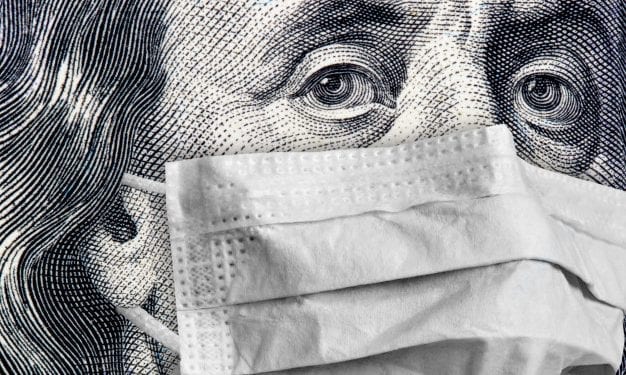In 2015, Martin Shkreli rocketed the price of a lifesaving AIDS drug from $13.50 per pill to $750 when running Turing Pharmaceuticals. Two years later, he was found guilty on two counts of securities fraud and a single count of conspiracy.
America has been littered over the years with ‘conmen’ obtaining ‘dirty money.’ In fact, the ‘conman’ starting with Charles Ponzi to Bernard Madoff and beyond are the stories that created the traditional definition of ‘dirty money.’ It is defined by The Cambridge Dictionary as ‘money that someone gets in an unfair, illegal, or dishonest way.’ But that definition is being redefined by the Covid-19 pandemic. Today, ‘dirty money’ has been defined as unsanitary–literally.
It reminds me of when I was a little kid. My parents would have me hold some change to keep me occupied. I would put a quarter in my mouth. My parents would exclaim: “Vincent, take that out of your mouth, money is dirty!” We are in a world where touching money is not only dirty, but dangerous–and unhygienic. Also, when I grew up, my parents preferred to pay in cash. And while cash may still be king on a company balance sheet, it has been relegated to a last-ditch payment method when we make a personal transaction today. Contactless payments are now front and center.
And the shift has been swift. In the US, the use of contactless cards has gone up about 150% per month since March 2020–the start of the pandemic. Before March, less than 10% of Americans used their contactless feature. Now it is well above 50%. A July survey by the Federal Reserve Bank of San Francisco found that 28% of respondents said they are avoiding using cash and using card payments instead due to the pandemic.
Past our shores, cash is on the decline in every country around the world. In March, the World Health Organization advised the public to use contactless technology where possible, to prevent the spread of the disease. Many retailers have stopped accepting cash altogether, instead encouraging customers to use contactless card payments or mobile apps to pay in a touch-free, more hygienic way. Given concerns that the virus can live on dollar bills for around 48 hours, and ATMs potentially touched by hundreds of hands without a deep clean in between, many of us have instead embraced touch-free payments.
As we move to touchless payments, the elephant in the room is not payment methods–it is health. The European Banking Authority (EBA) and the World Health Organization (WHO) advises not using cash to better stem the spread of the virus. The WHO goes so far as to recommend ‘holding a card above a payment terminal’–or contactless payments –or using a smartphone payment app.
As we move towards a more digital-focused society, government bodies are increasingly worried about the effects on vulnerable members of society. In particular, the elderly, those who remain unbanked, and those without smartphones are still reliant on cash and could be left excluded in a digital-first payment ecosystem. In a post-COVID world, these same groups are those who could be most exposed to further viruses from cash circulation. So, with touch-free payments important to improving hygiene, there is an important question to consider: could digital exclusion be a barrier to a COVID-free society?
In the immediate future, the use of biometrics to verify payments is a way to balance both security and hygiene. With a fingerprint biometric smart card, consumers can scan their fingerprint on their own payment card to secure a transaction above the contactless payment limit. This process secures the card to the owner and ensures they don’t need to touch shared pin pads during a purchase. Therefore, consumers can shop feeling assured that their money, and their personal health will be protected, regardless of how much they are spending.
By embracing fingerprint biometric payment cards, banks and payment providers will not only improve consumer security and hygiene, but also make the process of purchasing goods using their contactless card quicker and easier. Ultimately this can help cut the transaction time and, in today’s difficult retail environment, help to reduce queues at the checkout.
These changes have even led many analysts to suggest this large-scale shift to contactless card payments could mean the end for cash in the long term, as more consumers embrace contactless to increase hygiene during the payment process, and beyond.
So, the new definition of dirty money is actually what I learned as a little kid. When my parents said: “Vincent, take that out of your mouth, money is dirty!” How little did I know how right my parents were.








